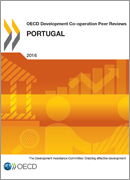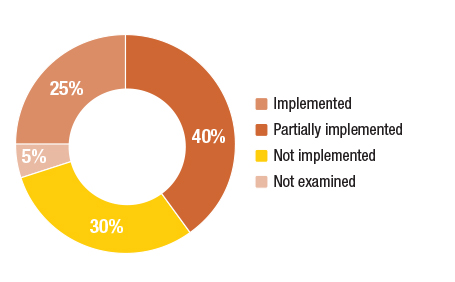Development
Portugal - DAC Peer Review of Development Co-operation, 2016
|
|||||
About
|
Implementation of
|
|
Related links
|
Strong whole-of-government presence in partner countries
Portugal has a strong whole-of-government presence in its partner countries, with many government ministries (Defence, Justice and International Affairs) having their own representatives in country. This has enabled Portugal to exploit synergies across its various policy communities and to deliver a comprehensive approach to development, beyond ODA, as evidenced in Sao Tome and Principe. However, this strong whole-of-government presence can also make harmonisation complicated, particularly given that many line ministries have their own direct relationships with their counterparts in partner countries. Portugal’s joint expert mission to Guinea-Bissau in 2014, which brought together representatives from over eight line ministries to establish renewed co-operation is a good example of an integrated response to partner country programming that could be emulated in other countries to ensure a truly co ordinated approach on the ground. |
Related Documents

